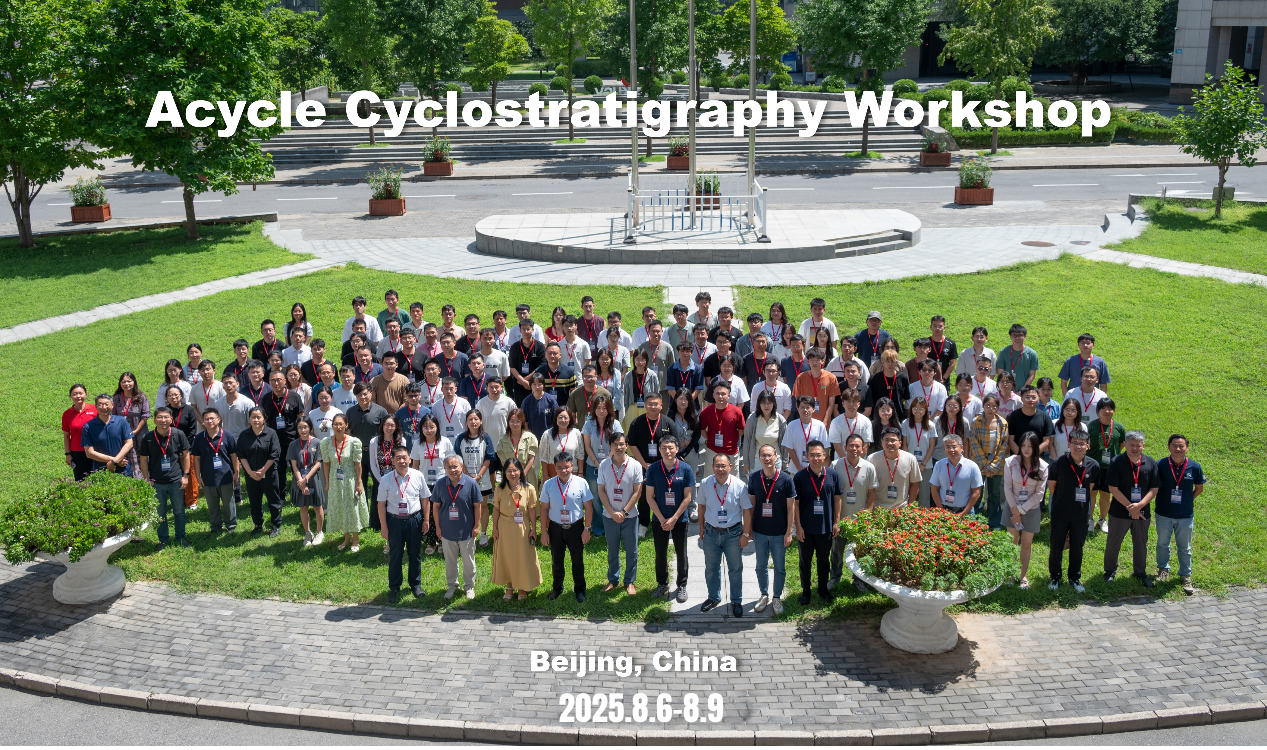Peking University, August 27, 2025: From August 7 to 9, 2025, the “Acycle Cyclostratigraphy Workshop” was jointly hosted by the School of Earth and Space Sciences and the Institute of Energy at Peking University. The event took place at the Zhongguanyuan Global Village, bringing together experts, early-career researchers, and graduate students from universities and research institutes across China to exchange insights on the latest advances in orbital variations, climate evolution, and high-resolution stratigraphy.
The workshop focused on the profound influence of Earth’s orbital cycles on climate systems and sedimentary records, with the aim of advancing theoretical and methodological innovations in astrochronology, orbitally driven climate change, and paleoenvironmental reconstruction. Topics covered ranged from the fundamentals of cyclostratigraphy and cutting-edge research progress to the theory and practical application of the Acycle software, with a strong emphasis on cultivating young talent and promoting high-quality development of related disciplines in China.
The workshop opened on the morning of August 7 with remarks by Prof. Lifei Zhang, Dean of the School of Earth and Space Sciences, who highlighted the unique value of cyclostratigraphy in Earth sciences and encouraged young scholars to explore the discipline’s promising future. This was followed by an online keynote by Zhijun Jin, Academician of the Chinese Academy of Sciences, entitled “Sedimentary Basin Fluctuation Analysis and Applications”, which outlined the periodic variations in Earth systems.
Subsequent presentations included:
• Prof. Huaichun Wu (China University of Geosciences, Beijing) on “Cyclostratigraphy Theory and Paleozoic Cycles”, providing a comprehensive overview of fundamental principles and methods for detecting orbital signals in Paleozoic strata.
• Prof. Chunju Huang (China University of Geosciences, Wuhan) on “Mesozoic cyclostratigraphy”, combining practical case studies with paleoclimate reconstruction.
• Prof. Jun Tian (Tongji University) on “Cenozoic cyclostratigraphy”, sharing insights from multiple International Ocean Discovery Program drill sites.
• Prof. Jianbo Liu (Peking University) on “Sedimentary cycles and phase analysis”.
• Prof. Chao Ma (Chengdu University of Technology) on “Solar System Orbital Reconstructions”.
• Prof. Mingsong Li (Peking University) on “Innovating paleohydrological Research through cyclostratigraphy”.
• Prof. Qiang Fang (China University of Geosciences, Beijing) discussed “key considerations for both field and laboratory work in cyclostratigraphy”.
The core of the day’s program centered on the Acycle software: Prof. Mingsong Li delivered detailed module-by-module lectures on its theory and operation, while teaching assistants led live demonstrations and guided participants through practical exercises, covering data preprocessing, spectral and wavelet analysis, confidence level assessment, statistical tuning, and noise modeling. The final day featured a detailed case study session by Dr. Ren Wei (Institute of Energy, Peking University), reinforcing participants’ mastery of the methods through step-by-step application.
The workshop concluded with closing remarks from Prof. Qingzhen Hao (Institute of Geology and Geophysics, Chinese Academy of Sciences), who praised the event’s academic achievements and encouraged further collaboration and research in cyclostratigraphy and astrochronology.
The event was held in a hybrid format. Over 150 participants attended in person at the main venue, while more than 270 joined online via Tencent Meeting and live streaming. In total, representatives from more than 70 institutions took part. The successful organization of the “Acycle Cyclostratigraphy Workshop” has further advanced the development of cyclostratigraphy and astrochronology in China, fostering innovation and contributing to world-class scientific outcomes in the Earth sciences.

Group photo of the meeting
Source: School of Earth and Space Sciences, Peking University
